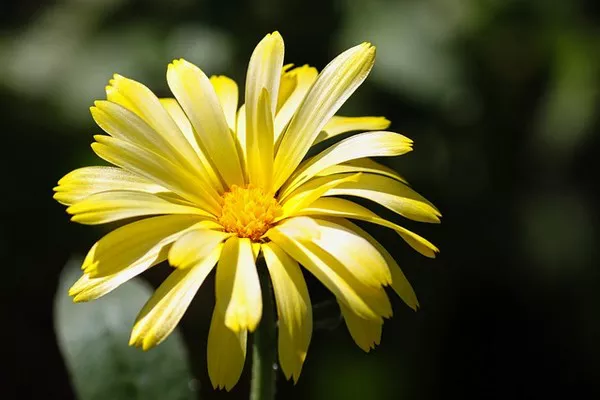Gardening enthusiasts often find themselves grappling with the challenge of coexisting with local wildlife, particularly rabbits, which can wreak havoc on carefully cultivated flower beds. Rabbits are notorious for their voracious appetite for plants, leaving gardeners in search of solutions to protect their floral investments. One effective approach is to choose flowers that rabbits are less likely to eat. In this article, we will explore a selection of rabbit-resistant flowers that can help you maintain the beauty of your garden while minimizing the appeal to these furry herbivores.
See Also: Bunny-Proofing: Strategies to Keep Rabbits Away from Flowers
Understanding Rabbit Feeding Behavior
Before delving into the world of rabbit-resistant flowers, it’s important to understand the feeding behavior of these small mammals. Rabbits are primarily herbivores, relying on plant-based diets for sustenance. Their preferences vary based on factors such as the availability of other food sources, local vegetation, and the time of year. When resources are scarce, rabbits may be more likely to venture into gardens in search of nourishment. This is why selecting flowers that are less appealing to rabbits can play a crucial role in protecting your garden.
Characteristics of Rabbit-Resistant Flowers
Rabbit-resistant flowers typically possess certain characteristics that make them less attractive to these nibbling creatures. These characteristics often revolve around taste, smell, and texture. Here are some key features to look for when selecting flowers for your garden:
1. Bitter or Pungent Taste:
Rabbits tend to avoid flowers with bitter or pungent flavors. Plants that contain compounds such as alkaloids, terpenes, and strong essential oils often fall into this category. Flowers like daffodils (Narcissus spp.), lavender (Lavandula spp.), and yarrow (Achillea spp.) contain substances that are unpalatable to rabbits.
2. Strong Aromas:
Flowers with strong, overpowering scents can deter rabbits from munching on them. Aromatic herbs like rosemary (Rosmarinus officinalis), sage (Salvia spp.), and mint (Mentha spp.) are known for their ability to repel rabbits due to their potent fragrances.
3. Fuzzy or Hairy Texture:
Rabbits are less likely to consume flowers with fuzzy or hairy leaves due to the uncomfortable sensation these textures can cause in their mouths. Flowers like lamb’s ear (Stachys byzantina) and globe thistle (Echinops spp.) fall into this category and can be effective in deterring rabbits.
Top Rabbit-Resistant Flowers for Your Garden
1.Marigolds (Tagetes spp.): Marigolds are renowned for their vibrant colors and strong scent. Their pungent aroma and slightly bitter taste make them an unappealing choice for rabbits. Marigolds are versatile and can be used to deter rabbits from various parts of your garden.
2. Coneflowers (Echinacea spp.): These native North American wildflowers feature sturdy stems and daisy-like blossoms. Rabbits tend to avoid coneflowers due to their rough texture and the compounds they contain. Additionally, coneflowers attract pollinators, enhancing the ecological balance of your garden.
3. Bee Balm (Monarda spp.): Bee balm, also known as wild bergamot, boasts showy clusters of tubular flowers in various shades. Its strong aroma, reminiscent of mint and citrus, serves as a natural deterrent for rabbits while attracting pollinators like bees and butterflies.
4. Foxglove (Digitalis spp.): With its tall spikes of bell-shaped flowers, foxglove adds vertical interest to your garden. However, its toxicity makes it unappealing to rabbits. While foxglove should be handled with care due to its poisonous nature, it can be a beautiful addition to a rabbit-resistant garden.
5. Bleeding Heart (Dicentra spp.): Bleeding heart plants feature distinct heart-shaped flowers dangling from arching stems. The texture of their leaves, along with their somewhat bitter taste, discourages rabbits from consuming them.
6. Salvia (Salvia spp.): Salvias come in a wide range of colors and sizes, making them a versatile choice for gardeners. Their strong scent and slightly fuzzy leaves make them less enticing to rabbits.
7. Daffodils (Narcissus spp.): Daffodils are cherished for their cheerful spring blooms. However, they contain toxic compounds that render them unappetizing to rabbits. These bright flowers can serve as a protective barrier at the perimeter of your garden.
8. Lavender (Lavandula spp.): Lavender’s fragrant blooms and aromatic foliage are beloved by humans but disliked by rabbits. Planting lavender near more vulnerable flowers can help deter rabbits from venturing deeper into your garden.
9. Lamb’s Ear (Stachys byzantina): The soft, fuzzy leaves of lamb’s ear plants create an unappetizing texture for rabbits. This ground-covering perennial can add a unique and tactile element to your garden.
10. Yarrow (Achillea spp.): Yarrow produces clusters of small, daisy-like flowers in various colors. Its bitter taste and strong scent contribute to its resistance against rabbit browsing.
Additional Tips for Rabbit Control
While selecting rabbit-resistant flowers is a step in the right direction, it’s important to consider a holistic approach to rabbit control in your garden:
Fencing: Installing a rabbit-proof fence around your garden can be one of the most effective ways to keep rabbits out. Make sure the fence is buried a few inches underground to prevent rabbits from burrowing underneath.
Natural Predators: Encouraging natural predators like hawks, owls, and foxes can help keep rabbit populations in check.
Repellents: Natural or commercial repellents, such as garlic spray or predator urine, can be applied around your garden to discourage rabbits from entering.
Companion Planting: Interspersing rabbit-resistant flowers with other plants can help mask the scents of more vulnerable plants, making your garden less attractive to rabbits.
In Conclusion
Maintaining a garden that thrives in the presence of rabbits requires careful consideration of plant choices and protective measures. By selecting rabbit-resistant flowers with characteristics like bitter taste, strong aromas, and unique textures, you can create a beautiful garden that is less appealing to these herbivorous pests. Remember that a combination of strategies, including fencing, natural predators, and repellents, can contribute to the success of your rabbit-control efforts. With the right approach, you can enjoy the beauty of your garden while minimizing the impact of rabbit browsing.


